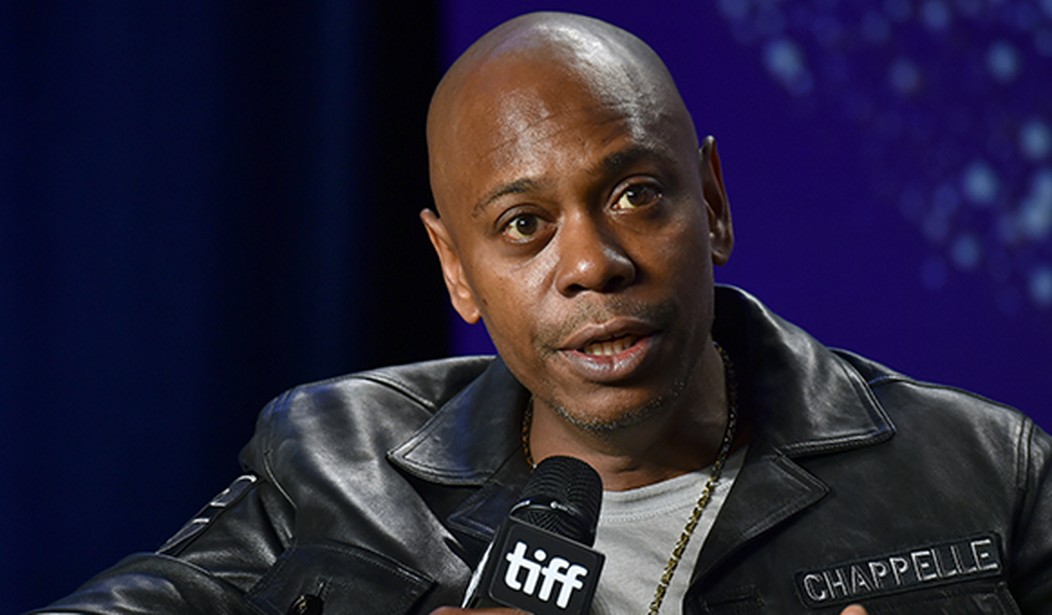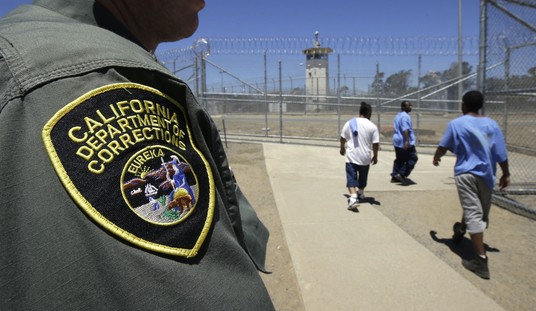The mob must be appeased, apparently, especially when it’s already inside the building. After staunchly defending his decision to run Dave Chappelle’s comedy special The Closer in the face of an employee revolt, Ted Sarandos now has some second thoughts. “I screwed up,” Sarandos tells Variety, in how he communicated the decision to staffers:
Do you have any regrets about how this process was handled, especially in your internal communication with employees?
Ted Sarandos: Obviously, I screwed up that internal communication. I did that, and I screwed it up in two ways. First and foremost, I should have led with a lot more humanity. Meaning, I had a group of employees who were definitely feeling pain and hurt from a decision we made. And I think that needs to be acknowledged up front before you get into the nuts and bolts of anything. I didn’t do that. That was uncharacteristic for me, and it was moving fast and we were trying to answer some really specific questions that were floating. We landed with some things that were much more blanket and matter-of-fact that are not at all accurate.
Of course storytelling has real impact in the real world. I reiterate that because it’s why I work here, it’s why we do what we do. That impact can be hugely positive, and it can be quite negative. So, I would have been better in that communication. They were joining a conversation already in progress, but out of context. But that happens, internal emails go out. In all my communications I should lean into the humanity up front and not make a blanket statement that could land very differently than it was intended.
Um … that’s exactly how Sarandos did lead off his note to Netflix employees. Variety has the full text of his memo at the link above, and this is the very first paragraph:
We know that a number of you have been left angry, disappointed and hurt by our decision to put Dave Chappelle’s latest special on Netflix. Also, we have many new colleagues who want to better understand the principles that guide our team’s content choices, especially with challenging titles like this.
Sarandos acknowledged the pain and “hurt” in his very first sentence. He went out of his way to be conciliatory, when the proper approach would have been to ask why his employees think that they can dictate terms on content in the first place. And the second point should have been that if they don’t like the content Netflix produces and publishes, HR can arrange your exit interview at any time.
Even Sarandos’ conclusion was more gracious than the revolters deserved for attempting to censor the platform that pays them:
We’ve had these operating principles around pleasing our members and artistic expression for many years, and the team’s decision to put The Closer on our service was consistent with them. The variety and quality of our content is what members value most. Our hope is that you can be hugely inspired by entertaining the world, while also living with titles you strongly believe have no place on Netflix. This will not be the last title that causes some of you to wonder if you can still love Netflix. I sincerely hope that you can.
So why the mea culpa for a sin Sarandos never committed? He wanted to push off an employee walkout, which took place today:
For the walk out tomorrow, there is a list of “firm asks” from trans employees to rectify this situation. Where are you at in hearing them out, and is anything emerging as a priority in the addressing the “pain” of some employees, as you put it?
I’ve spent the past couple of days listening to folks and sitting down with folks, about where they’re at and how they’re feeling and what they’d like to see moving forward. I’m continuing to do that now. One of the things that I think is very important that I want people to understand is that, going forward, it should be really clear that I support artistic freedom and the creators that work at Netflix. I’m committed to continuing to increase representation on screen and behind the camera, and I’m always open to learn and improve on how to address these challenges.
How successful was this strategy? Be sure to read Allahpundit’s post on the walkout and the idiocy on display. It doesn’t speak well for Sarandos that he got intimidated by this group of grievance mouthbreathers. Or that he employs them, for that matter.
While I appreciate Sarandos’ commitment to free expression by artists, I’m less confident in Sarandos’ ability to guarantee it — and such artists might want to look for other venues in the future. The proper way to deal with this kind of employee walkout is to make it permanent. Any employee who thinks they control the company rather than the CEO should learn a very harsh lesson, and the CEO should make sure to set that precedent firmly right from the very beginning. Replacing revolting staff might be costly in the short term, but you only have to do it once. Once you pay the Danegeld, well … Rudyard Kipling explained it all too well.
There’s nothing wrong with addressing employee concerns internally with some grace and understanding, which Sarandos has already done. It’s another entirely to put the inmates in charge of the asylum, which is the direction in which Sarandos went with this mea culpa over nothing at all. All Sarandos proved is that appeasement doesn’t work, a lesson he should take to heart after this afternoon’s embarrassment. If Sarandos wants to continue to lead his organization, he’d better start now.








Join the conversation as a VIP Member